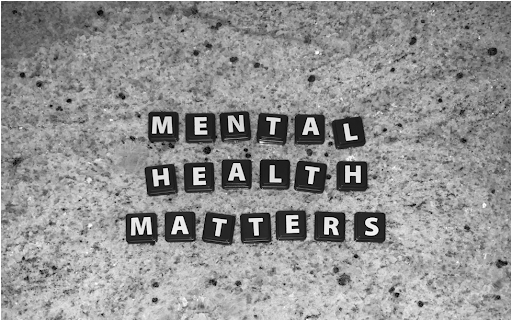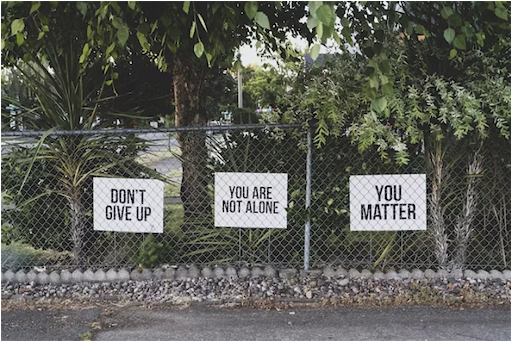Caretaking of mental health doesn’t need to be difficult; here are a few strategies that will help you feel better every day. Contrary to popular misconceptions, mental illness isn’t something one chooses or has to put up with alone, and with appropriate treatment and support available they can lead happy and satisfying lives.
Table of Contents
Be Kind to Yourself
Kindness comes easily to us; yet sometimes we forget the importance of showing ourselves some kindness as well. Being kind to yourself can help quiet your inner critic and build self-worth.
Being kind to yourself may include acknowledging negative thoughts, accepting that mistakes are part of human nature and focusing on what ignites you. Being kind also includes acknowledging strengths and achievements as well as taking time for rest and rejuvenation while making self-care a top priority.
Talk to a Therapist
Consulting with a therapist can feel daunting at first. It can be hard to open up to someone unfamiliar, and that little voice in your head tells you, “Be careful what you say!” Having a trusted therapist is important in order to bring up any concerns in advance of sessions. Writing down anything that needs discussing in a journal between sessions may also prove beneficial.
Some therapists like to give their clients homework or assignments before or during sessions. By taking these seriously, the assignments can be the best ideas to improve mental health that can lead to personal growth. For instance, someone having trouble with family dynamics might require learning new ways of handling it; this is where therapy comes in: they can teach their clients healthy coping mechanisms as well as ways of recognizing and controlling triggers.
Stay Positive
Maintaining a positive outlook on life can do wonders for your mental wellbeing. This doesn’t mean ignoring negatives entirely, but rather reducing how much time is spent worrying or complaining. Engaging in gratitude practices, resisting negative thought processes, and taking pleasure from positive news are all effective strategies to keep spirits high and maintain positivity in our daily lives.
At times of distress or uncertainty, it may help to recall all of the hard or uncertain times you have already navigated successfully. Remind yourself that resilience will enable you to face whatever challenge comes your way.

Exercise Often
Physical activity for adults can help ease stress and enhance mental wellbeing. Aim to do 30 minutes of physical activity three times every week – even 20 minutes can have beneficial results on mood. Try joining a walking group, yoga class, gardening project, cycling trip or high intensity interval training (HIIT).
Children and teenagers benefit greatly from engaging in play dates and summer activities that help keep their minds busy, prevent boredom and provide an outlet for excess energy. Furthermore, taking up employment over the summer helps them learn work ethic while earning money and can prevent isolating behaviors which could potentially lead to depression.
Get Enough Sleep
Sleep can have many positive benefits on our wellbeing and productivity, and can help ease stress management. Each individual may require different amounts of restful slumber; generally though, adults are advised to get 7-9 hours of restful slumber per night.
Keep a regular sleep schedule, such as trying to go to bed and wake up at roughly the same times each day (even weekends!). Also try limiting naps as these may interrupt nighttime slumber.
Eat a Healthy Diet
Diet is essential for physical health, but can also improve mood and alleviate stress and anxiety. A balanced diet should include lean proteins, healthy fats (such as avocados, olive oil and nuts), fruits, vegetables, whole grains and low-sugar beverages – such as those rich in trans fats, food coloring and chemical preservatives – fruits, vegetables, whole grains and low-sugar beverages.
Also try including foods rich in Omega-3 fatty acids, leafy greens and dark chocolate; both caffeine and theobromine can increase alertness. It’s important to keep in mind what you’ve eaten throughout the day in case you have an adverse reaction.
Stay Connected with Friends and Family
Nothing can boost mental wellbeing like feeling connected to those that matter to you. While social media and texting can certainly have their place, nothing beats spending quality face-to-face time with loved ones.
Try going on a weekend walk without your phone in hand or finding an activity without technology that you and your friends can enjoy together, such as cooking a meal together – even something simple like that can help strengthen relationships between individuals.

Take Time for Yourself & Seek Help
Feeling overwhelmed? Take a deep breath – leisure time is vitally important to mental wellbeing! Don’t put off giving yourself some much-needed “me time.”
Spending time doing activities you find pleasurable can help relax, elevate your mood and provide a sense of fulfillment. Try learning a new skill, taking a class or joining a club – even just reading a book or meditating can leave you feeling refreshed and relaxed.
Mental Health Resources – How to Contact a Mental Health Professional
Seeking professional assistance, whether for mental illness or an event in life that has had lasting repercussions, is an integral component of recovery. Finding an accommodator may require time and energy, but there are many resources available.
Individuals in search of mental health professionals can begin their search by consulting their primary care physician, visiting local mental health clinics or searching online. Most often, individuals can locate a therapist that fits their needs through interviewing various candidates until they feel at ease – this may involve clinical social workers, psychiatric nurse practitioners, licensed professional counselors or psychologists as potential options – some may offer talk therapy while others may prescribe medicines as needed.
A psychiatrist is a medical doctor who specializes in treating mental illnesses. Psychiatrists can work in private practice, mental health centers or hospitals and treat various conditions including anxiety, depression, bipolar disorder and schizophrenia. Psychotherapists may be recommended by psychiatrists as talk therapy sessions may also be offered by them; additionally they provide important information regarding what medications may be prescribed and other treatment options are available to them.

